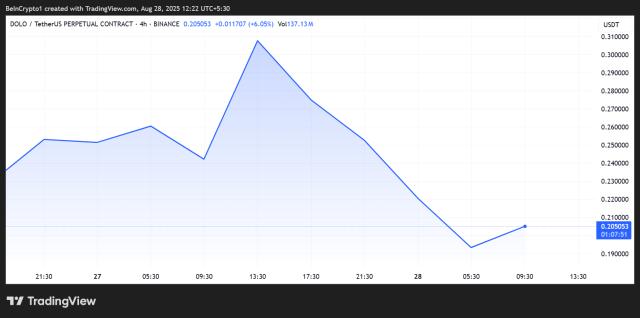Written by Ada & Liam, TechFlow
The price of the currency soared, and job hunting froze.
When Bitcoin broke through $110,000 and Ethereum set a new record high, the community shouted "the bull market is coming"; but in the recruitment market, it was a different picture.
"10,000 people squeezed into 28 positions"—the media headlines might be a bit exaggerated, but they also reflect the reality of Web3 job hunting. Projects are laying off staff, positions are being drastically reduced, and inboxes are overflowing with resumes.
On WeChat Moments, Web3 headhunter Nancy couldn't help but lament, " This year's hiring requirements are getting increasingly higher. Not only do they prioritize academic qualifications and English proficiency, but they also require vertical project experience."
Behind the apparent prosperity lies a shrinking, demanding, and brutal Web3 workplace. The crypto market's bull run and the industry's "breakthrough" have attracted countless young people and those switching from Web2 jobs to the field. However, they quickly discovered that there aren't as many positions as they imagined, nor are the salaries as high as they thought.
Why is it “a bull market but a cold winter in the workplace”?
When salary myths and survivor bias drive newcomers into the market, how many of them can truly gain a foothold in this seemingly bustling but actually turbulent Web3 job-hunting world?
Thanks for reading TechFlow TechFlow! Subscribe for free to receive new posts and support my work.
Soaring currency prices and a cold winter for employment
The Web3 recruitment market is often the most realistic barometer of the industry.
Bitcoin broke through $110,000, Ethereum hit a new high, and the media was full of voices saying "the bull market is coming", but the truth in the job market was completely the opposite.
Antoniayly, founder of the Web3 recruitment community abetterweb3, clearly perceives this contrast: "The job market has been deteriorating for a long time. The number of job seekers is increasing, but the number of job openings is decreasing."
In the past, abetterweb3 primarily posted job postings, but now it has become more of a "job search wall." For example, from August 22nd to 27th, there were only 14 new job postings, while there were 24 job postings.
Behind the numbers is a harsh reality. Project teams are undergoing large-scale downsizing: even Lido, a staking protocol that is on the cusp of Ethereum, laid off 15% of its employees this year, and Sandbox, once a leading metaverse platform, laid off 50% of its employees.
The primary market continues to slump, and many once-prosperous crypto VCs have either closed down or opted to remain closed. Without external VC funding, many projects that relied solely on fundraising have either collapsed or turned to the AI sector for survival.
The job market is "too many people and too few jobs": positions are shrinking like a funnel, but job seekers are pouring in like a tide.
Due to the serious imbalance between supply and demand, project parties have become more picky than ever when recruiting.
"Since last year, many clients have raised their hiring requirements. In addition to a background in a major internet company, they also require recent experience at a well-known Web3 project or exchange."
James, founder of Web3 headhunting firm Talentverse, said, “There are also requirements for the content of the work. If it involves smart contracts, token economics, or on-chain interactions, relevant work experience is required.”
However, even if you meet these hard requirements, you may not necessarily pass the interview.
"I've seen too many candidates with backgrounds at major companies who have strong technical skills but only a superficial understanding of Web3." Yulia, a Web3 headhunter specializing in overseas markets, shared a case study: "A P8 at a major company came for an interview. When asked, 'How to design a MEV-resistant DEX,' he was stunned for a full 30 seconds."
Hard skills are just the entry ticket. What employers value are some things that seem more "metaphysical".
"Positive attitude, industry passion, strong curiosity, rapid learning ability, self-motivation, independent thinking, and the ability to withstand pressure..." James listed seven or eight requirements in one breath. "These may seem vague, but they are the underlying logic for screening candidates, assuming that their backgrounds are similar."
The requirements for overseas teams are even more stringent. Yulia revealed that her clients (primarily European and American project owners) not only require English fluency but also a sense of cultural identity. "They'll discuss meme culture and the crypto-punk spirit during interviews. If you don't get these points, you're basically out of the running."
Behind the decrease in recruitment demand is the large-scale decline of startups .
Antoniayly has a deep understanding of this. "Around 2021, various crypto companies, from infrastructure to applications, wallets, DeFi, social networking, and more, were continuously hiring. Now, basically only exchanges, large public chains, and large DeFi applications are still hiring. It seems that small and micro enterprises in the entire industry have died out."
Exchanges are also shifting their recruitment strategies. Beyond traditional technical and product roles, an increasing number of operations positions require Web2 growth experience . In this influx of growth, candidates skilled in using Bilibili, Xiaohongshu, and private domain traffic generation are becoming increasingly sought after.
But the most surprising thing is the age issue.
"Compared to the last cycle, the age limit is actually much more relaxed this time around." James' observation overturned many people's perceptions. In an internet industry where people fear being "optimized" by turning 35, Web3 has opened its doors to some middle-aged people.
The reason is very realistic. As Web3 deepens its integration with traditional finance, it needs not only young people who can write code, but also experienced professionals who understand capital, have connections, and can handle regulation.
"Web3 is moving from its humble beginnings to professionalization," James concluded. "Before, you only needed courage to strike it rich. Now, we need multi-talented individuals who possess both professional capabilities and industry knowledge and the ability to integrate resources."
Expected misalignment
Is Web3 short of people?
“There is a lack of, but there is also a lack of,” was the unanimous answer among the respondents.
This seemingly contradictory phenomenon just reveals the structural problem of the Web3 talent market: on the one hand, a large number of job seekers submit their resumes, while on the other hand, exchanges and project parties still cannot find suitable candidates.
Headhunter Nancy, based in Singapore, works for leading exchanges. In her observation, operations positions are a classic example of "false prosperity."
"Every time we post an operations position, we get so many resumes that our inbox overflows," Nancy said with a wry smile. "But probably less than 1% actually meet the requirements."
What's the problem?
"Many people think operations is just about posting on Twitter and organizing events," Nancy explained. "But exchanges want experts in specific fields. For example, for contract operations, you need to understand contract mechanisms, risk control logic, and market maker thinking. For community operations, you need to understand DAO governance, token economics, and incentive mechanism design."
A real-world example is an exchange recruiting for a "DeFi Product Operations" position, requiring candidates to independently design liquidity mining solutions. Of the hundreds of resumes received, fewer than 10 truly understood the concept of Impermanent Loss.
"Most people apply to Web3 positions with a Web2 mindset," Nancy concluded. "They apply for roles simply because they see the word 'operations,' regardless of whether it's content operations, user operations, or product operations. This broad-based strategy doesn't work in Web3."
The most subtle mismatch in crypto job hunting occurs between expectations and market realities.
Evan has several Web3 project clients on hand. Their founding teams come from top investment banks or exchanges. The teams themselves are very elite and have high requirements for talents. There are very few candidates who can truly meet the requirements.
"I searched the market for three months and interviewed over 50 people, but none of them fully met the criteria," Evan said helplessly. "In the end, I could only advise the client to adjust their expectations and either train a product manager to learn Web3, or find a Web3 product manager to supplement their vertical domain knowledge."
This is a common mismatch between ideals and reality among Web3 startups. They hope to hire a combination of large-scale and Web3 talent with startup salaries, but often end up with nothing.
"Many founders live in their own world," a senior headhunter complained. "They think their project is the next Uniswap, so talented people should take a pay cut to join. But the reality is that talented people have too many choices."
For job seekers, they also have to experience the "salary expectation gap". Web3, which seems to be full of gold, may not necessarily have salaries as high as imagined.
In particular, some people who previously worked in traditional financial PE/VC or large Internet companies may experience a salary cut when joining a large Web3 company. The reason they choose to join Web3 is simple: Web2 has reached its peak, the crypto industry is more free, and it also provides an opportunity to gain financial freedom through investment.
"Survivor bias. There are too many myths of getting rich overnight in the crypto, which attracts many people and makes them think that they can do it too," complained an HR.
Unspoken rules in the workplace
In the Web3 workplace, there is an unwritten "chain of contempt": technology > product > other.
The most intuitive manifestation of this chain of contempt is the salary gap.
"At the same P7 level, the package for a technical position might be 2-3 times that of an operations position," Nancy said bluntly. "And technical positions also receive token incentives, while operations positions rarely receive any."
Even more brutally, non-technical positions are highly replaceable . "We've seen too many cases where non-technical positions are eliminated if they don't meet requirements or produce high output in the short term," Evan said. "But in technical positions, there are career ladders for advancement."
Why is this happening?
"Web3 is essentially a technology-driven industry," Evan said. "No matter how good your marketing is, if your product is rubbish, users won't buy it. But if your product is incredibly innovative, people will actively use it even without much promotion."
This "product is king" logic is particularly evident in DeFi: Uniswap has almost no marketing team, but has taken the leading position in DEX with its revolutionary AMM mechanism.
According to statistics from web3.career, among non-technical positions, product managers have the highest salaries, followed by legal, finance, HR, design, sales, project managers, marketing, social media operations, and community managers.
Of course, there are exceptions.
But the crypto industry is not friendly to newcomers.
An unspoken rule in the crypto industry is that many positions are never publicly recruited.
Finding certainty in uncertainty
Seeing so many people flocking to Web3, do you also have the urge to join?
Don’t panic, let’s take a look at a failed case first.
However, even so, there are still people willing to take the risk. Is there a relatively safe path?
This may be the direction where the next talent rushes to and the next hot spot for Web3.
Subscribe to the channel: https://t.me/TechFlowDaily
Telegram: https://t.me/TechFlowPost
Twitter: @TechFlowPost
Join the WeChat group and add the assistant WeChat: blocktheworld
Donate to TechFlow to receive blessings and permanent records
ETH: 0x0E58bB9795a9D0F065e3a8Cc2aed2A63D6977d8A
BSC: 0x0E58bB9795a9D0F065e3a8Cc2aed2A63D6977d8A









